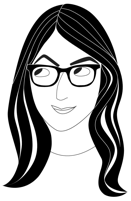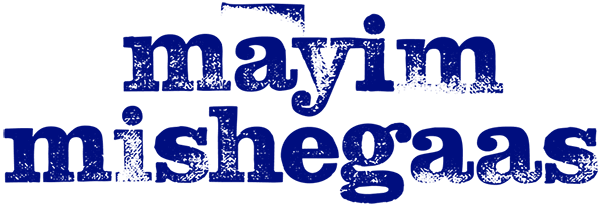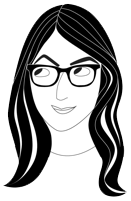
I am trained as a neuroscientist. My PhD is in the field of psychoneuroendocrinology, and my thesis was on Obsessive-Compulsive Disorder. As a graduate student, my office was in the NeuroPsychiatric Unit at UCLA in the medical center. Because of my studies and my personal experience, I see the world as a spectrum of mental illness. My family has been profoundly and tragically affected by mental illness and in my circle of friends, I have witnessed mental illness firsthand and continue to see it both regulated and unregulated. I am a huge proponent of psychotherapy and I believe that mental health care is a human right, rather than something enjoyed mostly by people who can afford it, which is how our country has set it up.
I try to put away my neuroscientist hat when I’m out socializing and just being a person, but it’s hard not to see that many people are struggling on a daily basis with no support or education about what mental illness is. Or that we don’t have to live with things that plague us. There is help and hope.
Many of the people I hear described in casual conversations as “crazy” are often suffering from personality disorders that they have not gotten help with. I interact with a lot of actors and artists in my life and a lot of us have complicated reasons for being actors and artists. I sometimes say that acting schools should send certain people to spend their money on therapy rather than on acting classes, and among artists, you will often see a lot of overlap of creativity and mental health struggles. (Check out this list of famous artists who suffered from mental illness.)
Nearly 60 million Americans, youth and adults struggle with mental health issues. Fifty percent of all lifetime cases of mental illness emerge by age 14 and 75% by age 24. Despite our awareness of this and our best efforts to reduce these numbers, suicide among youth is getting worse, not better. The sooner we learn about and can understand these issues, the sooner we will be able to help.
Manic Depression/Bipolar Disorder: This condition is characterized by alternating periods of depression and mania. There are different types, but for the most part, repeated episodes of really bad deep depression and hopelessness and possibly suicidal thoughts alternating with periods of intense energy, little need for sleep, and “out-of-character” behavior such as spending a lot of money in a short time or having indiscriminate or intentionally risky sex with a lot of people in a short time. Both depression and mania need to be present for this diagnosis.
Schizophrenia: Schizophrenia is characterized by delusions, hallucinations, and, in some cases, paranoia. The people you see talking to themselves on the street typically are having hallucinations. Their brain is actually producing sounds and visions which they see as real. Certain street drugs can produce behavior that looks a lot like schizophrenia. When we hear that people wrote “long, rambling manifestos” about the world being against them, and when we hear things like “God spoke to me and made me do this,” those are signs in the mental health world that someone was likely suffering from schizophrenia, or a related mental illness.
Anxiety: This is a feeling of intense worry and fear that in many cases can interfere with your life significantly. Anxious people may have heart palpitations or anxiety attacks where they sweat or shake or feel really scared all of a sudden and don’t know why. Sometimes people have specifics fears with no basis in any experience (like fear of balloons or fear of cats) and we call those phobias. Nail-biting and hair puling are things we sometimes see people do to dissipate anxiety. Smoking and over-eating are also things people do sometimes to help their anxiety. Social anxiety is specifically related to being around people. Some people drink alcohol to lessen that anxiety, and some people drink way too much alcohol to lessen that.
Depression: Depression is a long-running pervasive consistent feeling of hopelessness and loss of interest in activities that previously brought you pleasure; sometimes depressed people think about or plan suicide. Sometimes depression is brought on by events such as financial struggles, death, divorce, or other big changes. Depression is not the same as grief, though. And it’s not the same as being really, really sad. It’s different. To determine if someone is depressed or just sad, clinicians will often assess how long the period of depression lasts and also seeing how much it interferes with daily life.
Obsessive-Compulsive Disorder: OCD is characterized by obsessions and compulsions designed to relieve anxiety and stress. (See our other post here at GrokNation on this subject.) Obsessions often center around a need for cleanliness and order, and compulsive acts performed to achieve those can include ritualized breathing, counting, checking behaviors, and hand-washing.
Dissociative Identity Disorder (Multiple Personality Disorder): This is a much more rare disorder where a typically traumatic event causes a person to “dissociate” and separate from themselves mentally. They create alternate personalities in their minds that serve to care for certain parts of the person. Sometimes it’s a lot of personalities, sometimes it’s not so many.
Personality Disorders: There are so many personality disorders; it would take a whole book to explain them all. People who have tremendous difficulty maintaining jobs or relationships or friendships often suffer from a personality disorder like Borderline Personality Disorder. A diagnosis of Obsessive Compulsive Personality Disorder is characterized by a huge difficulty working with others because of a need for perfection and precision.
If you or someone you know has consistent or repeated problems in relationships or at work or in school, get help. If you feel scared of your thoughts, get help. If you find you can’t stop thinking about something, get help. If you wonder why you are alive and think no one loves you, get help. If you hear voices or feel like someone in your head is making you do things, get help. If you recently suffered a recent break-up or are grieving a loss in your life or if something in the news is stuck in your head, get help.
Here are some places to reach out to.
- NAMI: The National Alliance on Mental Illness
- For young people who are depressed and/or suicidal there is a hotline that can be accessed via texting. Here is the link: http://www.crisistextline.org/get-help-now/




 Read More From Mayim
Read More From Mayim
Grok Nation Comment Policy
We welcome thoughtful, grokky comments—keep your negativity and spam to yourself. Please read our Comment Policy before commenting.